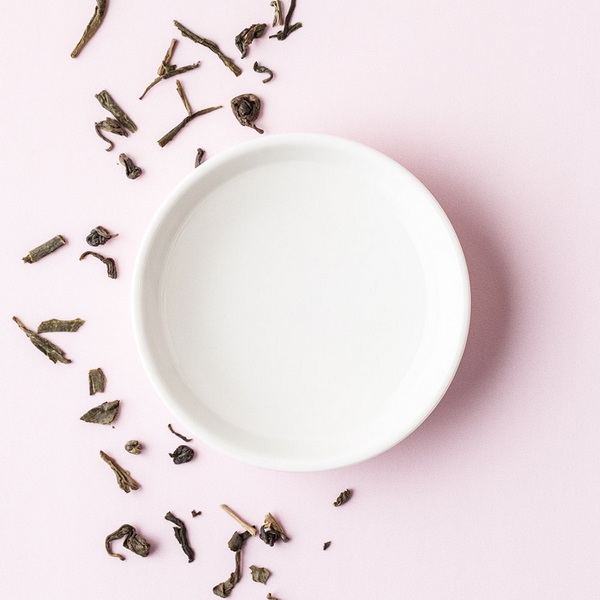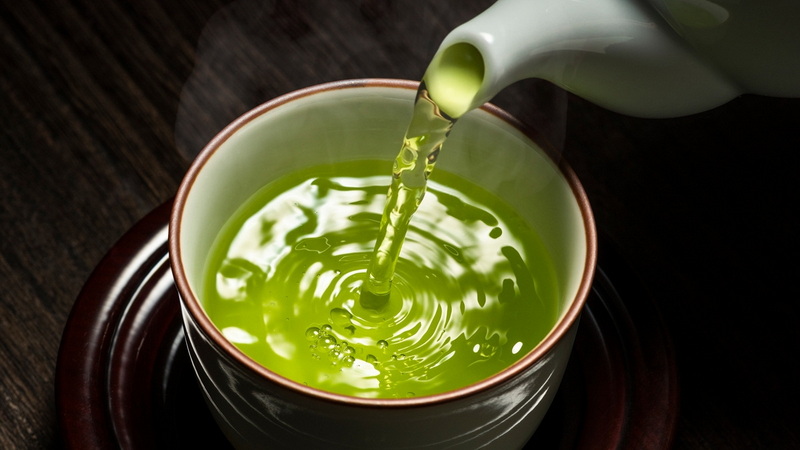Content Menu
● Overview of Green Tea Extract
● Key Ingredients in Green Tea Extract
● Health Benefits Associated with Green Tea Extract
● How Is Green Tea Extract Made?
● Forms of Green Tea Extract
● Safety and Side Effects
● Recommended Dosage
● Interactions with Medications
● Conclusion
● FAQs
>> 1. What is the main active ingredient in green tea extract?
>> 2. Can green tea extract help with weight loss?
>> 3. Is there caffeine in green tea extract?
>> 4. How should I take green tea extract?
>> 5. Are there any side effects associated with green tea extract?
● Citations:
Green tea extract, derived from the leaves of the Camellia sinensis plant, is renowned for its health benefits and rich antioxidant properties. This article delves into the various components of green tea extract, their functions, and the potential health advantages they offer.

Overview of Green Tea Extract
Green tea has been consumed for centuries, primarily in Asian cultures, and has gained popularity worldwide due to its numerous health benefits. The extract is a concentrated form of green tea, containing high levels of active compounds that contribute to its efficacy. Unlike black tea, which undergoes oxidation during processing, green tea is minimally processed, preserving its natural compounds.
Key Ingredients in Green Tea Extract
The primary ingredients in green tea extract include:
- Catechins: These are the most significant antioxidants in green tea extract, with epigallocatechin gallate (EGCG) being the most studied and beneficial. Catechins are known for their ability to combat oxidative stress and inflammation. Research has shown that EGCG can inhibit the growth of cancer cells and reduce the risk of chronic diseases.
- Caffeine: Green tea extract contains caffeine, which can enhance alertness and physical performance. Unlike coffee, the caffeine in green tea is often better tolerated due to its interaction with other compounds. This synergy can lead to improved focus without the jittery side effects commonly associated with coffee.
- Amino Acids: Theanine is a notable amino acid found in green tea that promotes relaxation without drowsiness. It can also enhance cognitive performance and mood by increasing levels of serotonin and dopamine in the brain.
- Vitamins and Minerals: Green tea extract includes vitamins such as vitamin C and minerals like manganese, which play essential roles in various bodily functions. Vitamin C is crucial for immune function, while manganese supports bone health and metabolism.
- Polyphenols: Apart from catechins, green tea contains other polyphenolic compounds that contribute to its antioxidant properties. These compounds help reduce inflammation and may lower the risk of heart disease.
- Saponins: These compounds have been shown to have immune-boosting properties. They may also help lower cholesterol levels and improve gut health by promoting beneficial bacteria.
Health Benefits Associated with Green Tea Extract
The active ingredients in green tea extract provide a range of health benefits:
- Antioxidant Properties: The high concentration of catechins helps reduce oxidative stress, which can lead to chronic diseases such as cancer and cardiovascular issues. Antioxidants neutralize free radicals, reducing cellular damage.
- Weight Management: Studies suggest that green tea extract can aid in weight loss by increasing metabolism and fat oxidation. A study published in the *American Journal of Clinical Nutrition* found that participants who consumed green tea extract lost more weight than those who did not.
- Heart Health: Regular consumption may improve cholesterol levels and reduce blood pressure, contributing to overall cardiovascular health. Research indicates that green tea drinkers have a lower risk of developing heart disease.
- Brain Function: The combination of caffeine and theanine can enhance brain function, improve memory, and protect against neurodegenerative diseases such as Alzheimer's and Parkinson's disease. Some studies suggest that these compounds may help improve reaction time and cognitive performance.
- Skin Health: Antioxidants in green tea extract may help protect skin from damage caused by UV rays and pollution. Topical applications have been shown to reduce signs of aging and improve skin elasticity.
- Cancer Prevention: Some studies suggest that the antioxidants found in green tea extract may play a role in reducing the risk of certain types of cancer, including breast, prostate, and colorectal cancers. However, more research is needed to establish definitive links.

How Is Green Tea Extract Made?
The production of green tea extract involves several steps:
1. Harvesting: Young leaves are carefully picked from the *Camellia sinensis* plant.
2. Steaming or Pan-Frying: This process prevents fermentation and preserves the natural compounds while retaining their vibrant green color.
3. Drying: The leaves are dried to remove moisture while retaining their active ingredients.
4. Extraction: The dried leaves are then processed using solvents like water or ethanol to concentrate the beneficial compounds.
5. Concentration: The extracted liquid is further concentrated through evaporation or spray-drying methods to create a powdered form or liquid concentrate.
6. Quality Control: Rigorous testing ensures that the final product meets safety standards and retains high levels of active ingredients.
Forms of Green Tea Extract
Green tea extract is available in various forms:
- Capsules/Tablets: These provide a concentrated dose of active ingredients for easy consumption.
- Powdered Extracts: Often used in smoothies or baking; they can be easily incorporated into daily diets.
- Liquid Extracts: Can be added to beverages for enhanced flavor and health benefits.
Safety and Side Effects
While green tea extract is generally safe for most people when consumed in moderation, excessive intake may lead to side effects such as:
- Nausea
- Insomnia
- Liver toxicity (in rare cases)
It is advisable to consult a healthcare professional before starting any new supplement regimen, especially for individuals with pre-existing health conditions or those taking medications.
Recommended Dosage
The recommended dosage for green tea extract varies depending on individual needs and product formulations:
- For general health benefits, 250–500 mg per day is commonly suggested.
- For weight loss or specific health conditions, higher doses may be recommended but should be taken under medical supervision.
Interactions with Medications
Green tea extract may interact with certain medications:
- Blood thinners (e.g., warfarin): The vitamin K content may affect blood clotting.
- Stimulants (e.g., certain ADHD medications): The caffeine content could amplify effects.
Always consult with a healthcare provider before combining supplements with prescription medications.
Conclusion
Green tea extract is a potent source of antioxidants and other beneficial compounds that contribute to various health benefits, including improved heart health, weight management, enhanced cognitive function, and skin protection. As with any supplement, moderation is key to maximizing its advantages while minimizing potential risks.

FAQs
1. What is the main active ingredient in green tea extract?
The main active ingredient is catechins, particularly epigallocatechin gallate (EGCG), known for its antioxidant properties.
2. Can green tea extract help with weight loss?
Yes, studies indicate that green tea extract can boost metabolism and aid in fat oxidation, contributing to weight loss efforts.
3. Is there caffeine in green tea extract?
Yes, green tea extract contains caffeine but typically less than coffee; it also includes theanine which can mitigate some effects of caffeine.
4. How should I take green tea extract?
It can be taken as capsules, tablets, or powdered forms mixed into beverages or foods.
5. Are there any side effects associated with green tea extract?
While generally safe for most people, excessive consumption may lead to nausea or liver issues; consulting a healthcare provider is recommended.
Citations:
1. https://www.greentea.net/ingredients/
2. https://www.healthline.com/nutrition/10-benefits-of-green-tea-extract
3. https://patents.google.com/patent/TWI607708B/zh
4. https://www.makingcosmetics.com/BOT-GRTEA-02.html?lang=en_US
5. https://pmc.ncbi.nlm.nih.gov/articles/PMC6412948/
6. https://pmc.ncbi.nlm.nih.gov/articles/PMC9231383/
7. https://incidecoder.com/ingredients/camellia-sinensis-leaf-extract
8. https://health.clevelandclinic.org/green-tea-extract-a-better-way-to-boost-energy-or-not
9. https://pmc.ncbi.nlm.nih.gov/articles/PMC7555212/
10. https://pmc.ncbi.nlm.nih.gov/articles/PMC6941079/






























